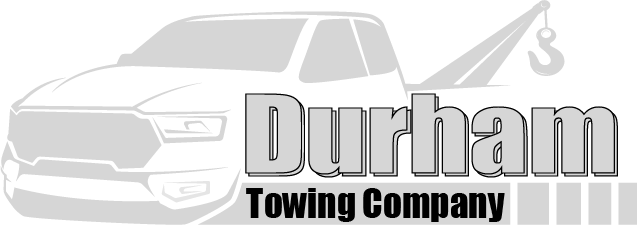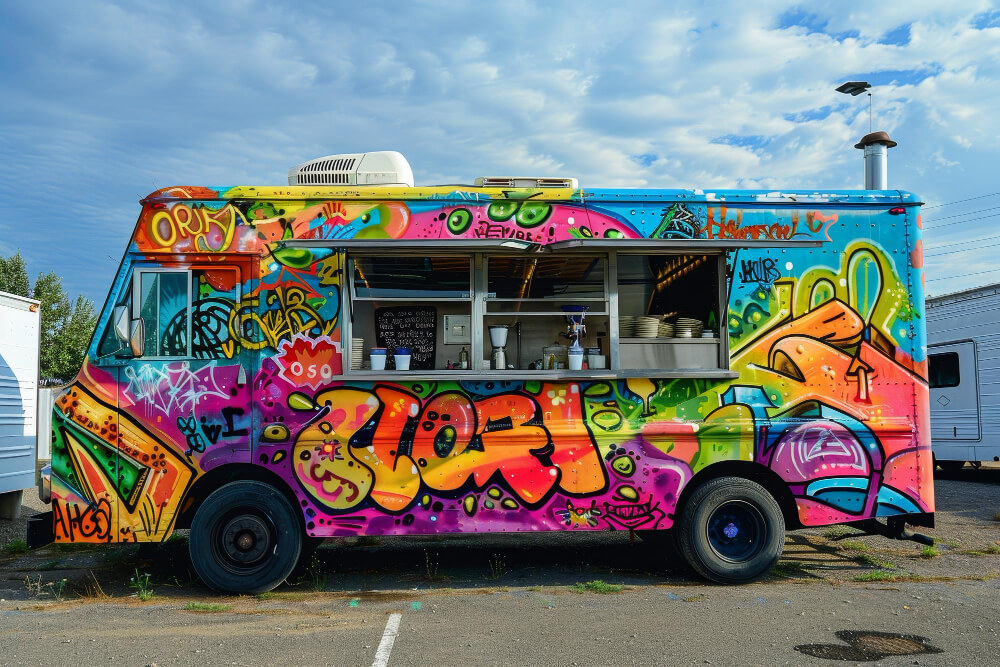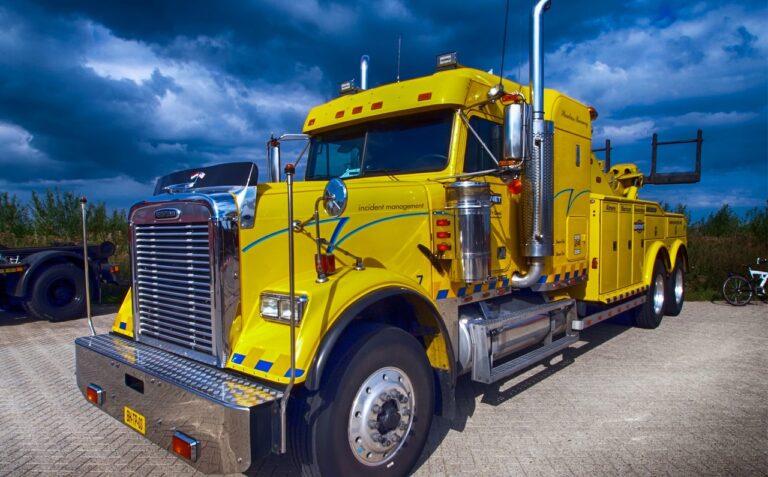Durham’s vibrant food truck culture brings amazing culinary experiences to local festivals, but safely transporting these mobile kitchens presents unique challenges. At Durham Towing Company, we’ve seen how proper towing knowledge protects your investment and ensures smooth operations at events throughout Durham, Chapel Hill, RTP, and surrounding communities. Food truck towing requires specific expertise—from understanding weight requirements to navigating tight festival layouts.
This guide covers essential preparation steps, local logistics considerations, and when to call professionals at 919-805-3344. Whether you’re a seasoned operator or new to the food truck scene, these guidelines will help you arrive at your next festival ready to serve rather than dealing with transportation headaches.
Understanding Your Food Truck’s Towing Requirements
Do you truly know what it takes to safely tow your culinary investment? Food truck towing begins with understanding the unique specifications of your mobile kitchen.
Types of Food Trucks and Their Towing Needs
Food trucks come in various shapes and sizes, from converted step vans to custom-built trailers, and each has different towing requirements. The first step is determining your truck’s Gross Vehicle Weight Rating (GVWR), which includes the weight of the truck itself plus all your equipment, supplies, and fuel. This number is crucial because exceeding it can lead to dangerous driving conditions and potential damage to your truck.
Common Weight Calculation Mistakes
Many food truck owners make the critical mistake of underestimating their truck’s weight, especially after adding heavy kitchen equipment, water tanks, and generators. Remember that food trucks are significantly heavier than standard vehicles due to their specialized equipment.
Essential Towing Equipment
Your towing vehicle must have adequate capacity to handle this weight. The necessary equipment for safe towing includes:
- Appropriate hitch class: Must be properly rated for your food truck’s weight. A Class III or IV hitch is typically required for most food trucks due to their substantial weight.
- Proper ball mount and hitch ball: These must be correctly sized to ensure secure connection between your vehicle and food truck. Using the wrong size creates dangerous towing conditions.
- Safety chains: These serve as backup connections if the main hitch fails. Always cross the chains under the tongue for additional security.
- Functional brake controllers: Larger trucks require these to ensure stopping power is distributed properly between towing vehicle and food truck.
- Extended side mirrors: These provide improved visibility around your wide food truck, helping you safely change lanes and monitor traffic conditions.
Pre-Festival Food Truck Towing Preparation Checklist
How ready is your food truck for the journey to your next festival? Preparation is key to successful food truck towing.
Securing Your Mobile Kitchen
Before hitting the road to your next Durham festival, take time to properly secure your kitchen’s interior. Loose equipment not only risks damage but can dangerously shift your truck’s weight distribution during transport. Start by:
- Removing or securing loose items: All utensils, pots, and pans should be stowed in latched cabinets or removed completely. Even small items can become dangerous projectiles during sudden stops.
- Locking refrigeration units: Secure refrigerator and freezer doors with travel straps or built-in locks. Food and beverages shifting inside these units can cause balance issues while towing.
- Propane tank management: Disconnect and properly stow propane tanks. Many owners don’t realize propane tanks should never be transported while connected. Ensure valves are completely closed and protective caps are in place.
- Anchoring heavy equipment: Secure fryers, grills, and other heavy appliances with additional straps or brackets. These heavy items can cause significant damage if they shift during transport.
- Managing water systems: Empty water tanks to reduce weight and prevent spillage. Water is extremely heavy (about 8.3 pounds per gallon) and sloshing water can affect handling.
Critical Pre-Tow Inspections
Your tires are quite literally where the rubber meets the road. Check all tires, including spares, for proper inflation and signs of wear before each towing trip. Underinflated tires are particularly dangerous when carrying the heavy loads of a food truck.
Don’t overlook your brake system, both on your towing vehicle and any trailer brakes your food truck may have. Stopping a food truck requires significantly more distance than a standard vehicle, and properly functioning brakes are non-negotiable for safety.
Finally, verify all electrical connections for brake lights, turn signals, and hazard lights. These are not just legal requirements but essential safety features that communicate your intentions to other drivers when towing a large food truck.
Durham Festival Logistics and Planning for Food Truck Towing
What specific challenges will you face when towing your food truck to Durham’s popular festivals? Let’s navigate the local landscape together.
Major Durham Festival Overview
Durham’s festival calendar fills quickly from spring through fall, with events like the Durham Food Truck Rodeo, CenterFest Arts Festival, and Bull City Race Fest drawing significant crowds. Each venue presents unique logistics for food truck towing and placement.
Local Towing Regulations
Within Durham city limits, commercial vehicles, including towed food trucks, may face specific restrictions on certain roads and during peak hours. Research your route thoroughly and check the city’s website for any temporary restrictions due to construction or events.
Timing and Positioning Strategies
Festival setup timing is crucial for smooth food truck towing operations. Most Durham festivals provide specific arrival windows for food trucks, typically several hours before the event begins. Arriving during your designated time prevents congestion and ensures adequate space for maneuvering your truck into position.
“The most challenging part isn’t usually the distance but the final positioning,” explains a regular at Durham food festivals. “Some venues have tight spaces or uneven ground that can complicate the final placement of your truck.”
Venue-Specific Considerations
Consider these venue-specific considerations:
- Durham Central Park: Has limited access points and can get congested during setup. The narrow entrance from Foster Street requires careful maneuvering, especially for longer food trucks.
- American Tobacco Campus: Requires advance coordination due to its unique layout. The historic architecture and pedestrian walkways create tight clearances that demand precise food truck towing skills.
- Duke University events: Typically have specific entry points and strict scheduling. Campus security may require advance credentials, and certain areas have height restrictions due to overhanging trees or structures.
Always obtain contact information for the festival coordinator and keep it handy during transport. They can provide last-minute guidance if you encounter unexpected road closures or access issues while towing your food truck.
When Professional Food Truck Towing Services Become Necessary
Have you considered when DIY towing might not be the best option for your food truck? Recognizing these situations can save you time, money, and stress.
Scenarios Requiring Professional Help
While many food truck owners handle their own towing, certain scenarios warrant professional assistance:
- Mechanical breakdowns: When your towing vehicle or food truck experiences mechanical failure, professional recovery prevents further damage.
- Accident recovery: Following any collision, specialized equipment is needed to safely recover and transport a food truck without causing additional damage.
- Challenging locations: Some festival venues have extremely limited access or tight turns that require expert towing skills to navigate.
- Overweight situations: If your food truck exceeds your towing vehicle’s capacity, professional heavy-duty towing is the safe alternative.
Benefits of Professional Food Truck Towing
Professional food truck towing services offer several advantages:
- Specialized equipment: Professionals use vehicles specifically designed for commercial kitchen transport, with proper weight capacities and towing features.
- Urban navigation experience: Experienced towers know how to navigate tight urban environments that often challenge food truck owners.
- Comprehensive insurance: Professional services carry proper insurance coverage for high-value commercial vehicles, protecting your investment.
- Technical expertise: Professionals understand weight distribution and balancing for unusual loads, preventing damage during transport.
- Emergency response capability: Professional services can handle emergencies efficiently, minimizing downtime for your business.
At Durham Towing Company, we’ve helped many food truck owners when they’ve encountered situations beyond their towing capabilities. Our experience with food truck towing means we understand the unique challenges of moving these specialized vehicles safely.
Legal Considerations for Food Truck Towing
What legal requirements might you be overlooking when towing your food truck? The regulatory landscape is more complex than many owners realize.
Permits and Documentation
Food truck towing in North Carolina requires compliance with various regulations. Depending on your truck’s size and weight, you may need special permits for transport. Food trucks exceeding certain dimensions or weights require oversize load permits from the North Carolina Department of Transportation.
Insurance Requirements
Insurance considerations extend beyond your standard auto policy. When towing a food truck, verify that your insurance covers:
- Towing vehicle protection: Your primary vehicle needs appropriate coverage for the towing activity it performs.
- Food truck transit coverage: Ensure your policy specifically covers the food truck itself during transport, not just when stationary.
- Equipment insurance: Internal equipment should be covered against damage during transportation.
- Liability protection: Your policy should include liability coverage for accidents that occur during towing operations.
Licensing Considerations
Driver’s license requirements vary based on your food truck’s weight. While smaller food trucks may be towable with a standard license, larger ones may require a commercial driver’s license (CDL) with appropriate endorsements.
Highway regulations include restrictions on which roads allow commercial vehicles and specific rules for commercial vehicle stopping distances and lane usage. Be particularly mindful of height restrictions when towing taller food trucks; low bridges and overpasses can cause catastrophic damage.
Ensuring Safe Food Truck Towing for Festival Success
Proper food truck towing preparation is as crucial as perfecting your signature dishes. By understanding your truck’s requirements, securing your equipment, planning for local festival logistics, and knowing when to seek professional assistance, you’ll protect your mobile kitchen and your business reputation.
At Durham Towing Company (919-805-3344), we’re committed to supporting food truck owners throughout the Triangle area with reliable heavy-duty towing services when needed. Your food truck represents both your livelihood and your passion—ensure its journey is as successful as the cuisine you serve by implementing these essential towing practices as Durham’s festival season approaches.


